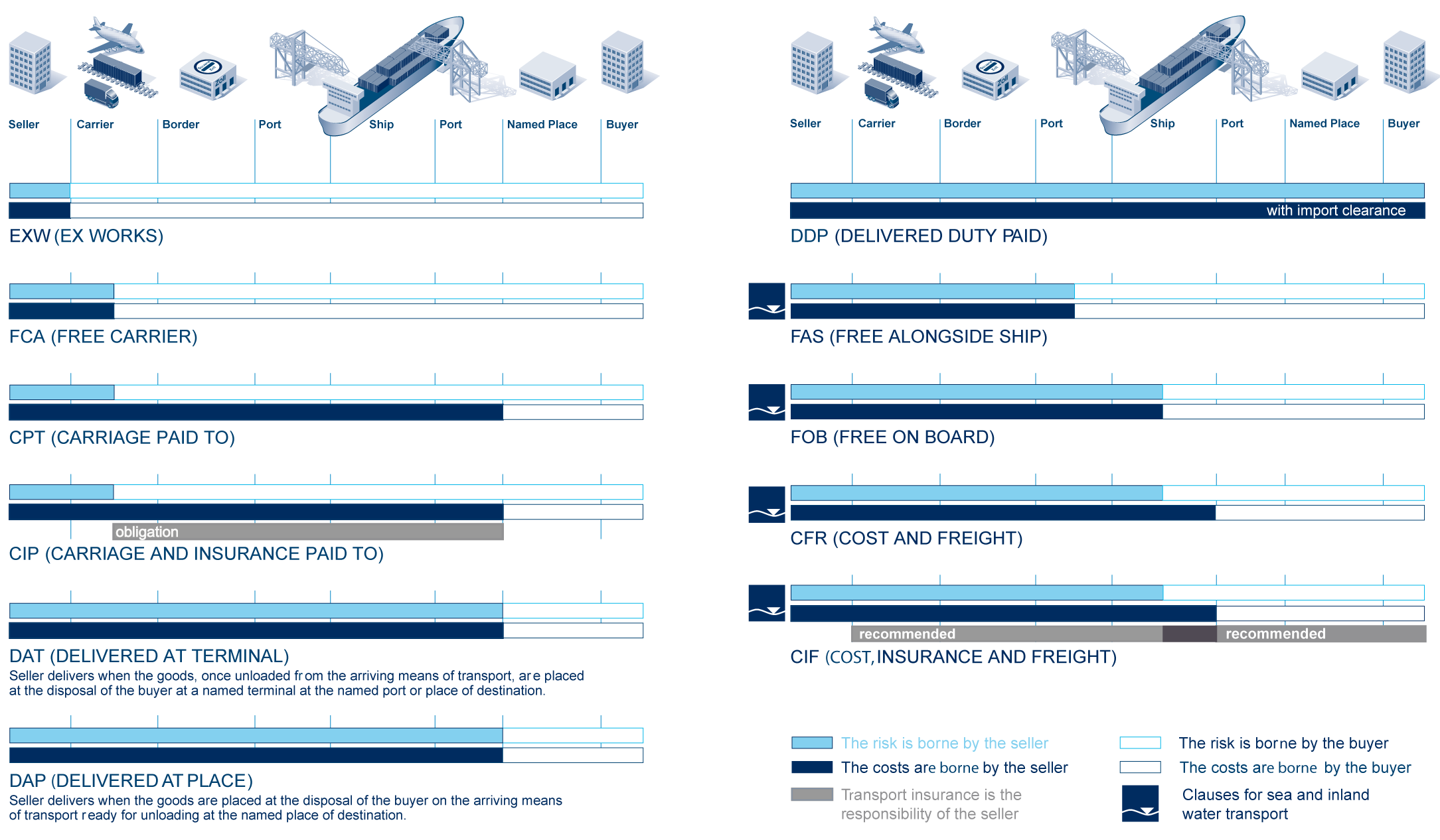They are international standards of trade terms, developed, maintained and promoted by the International Chamber of Commerce Law and Practice Committee (CLP-ICC) . INCOTERMS are terms used in an international contract of sale, that define which of the two parties (seller or buyer) has the obligation to insure the merchandise, what kind of policy should be purchased and who pays the insurance premium.
These thirteen standardized terms facilitate international trade by allowing agents from different countries to understand each other. They are terms commonly used in international contracts and whose definition is protected by copyright of ICC. Meaning of the different incoterms:

